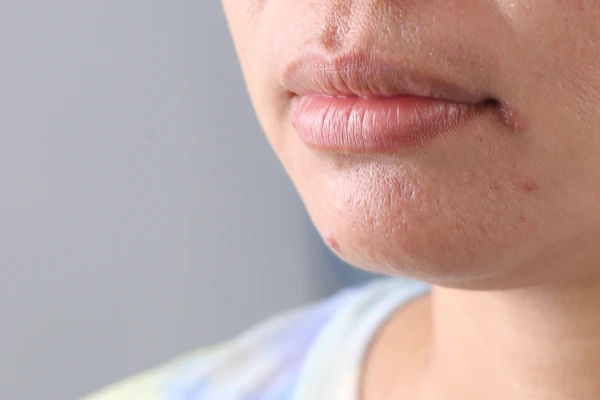Guide to World Oral Health Day
Explore the significance of World Oral Health Day, tips for maintaining healthy teeth and gums, and ways to raise awareness about oral hygiene.

Written by Dr. Dhankecha Mayank Dineshbhai
Reviewed by Dr. Mohammed Kamran MBBS, FIDM
Last updated on 13th Jan, 2026
.webp?tr=q-80,f-webp,w-350,dpr-2,c-at_max 700w)
Introduction
Every year on March 20th, the world unites to celebrate World Oral Health Day (WOHD), a global campaign orchestrated by the FDI World Dental Federation to underscore the importance of oral health for everyone, everywhere. It’s more than just a reminder to brush and floss; it’s a call to recognize that a healthy mouth is integral to our overall health, well-being, and quality of life. Yet, oral diseases, which are largely preventable, affect nearly 3.5 billion people worldwide. This day aims to empower people with the knowledge and tools to take control of their oral hygiene and break down the barriers to accessing care. This comprehensive guide will walk you through the history of WOHD, the significance of the 2024 theme, and provide actionable steps you can take to improve not just your smile, but your entire body's health. Let's dive into how you can be a part of this positive global movement.
What is World Oral Health Day?
World Oral Health Day was first declared by the FDI in 2007 and officially launched in 2013. It was initially celebrated on September 12th, the birth date of FDI founder Dr. Charles Godon, but was moved to March 20th to avoid conflict with the World Dental Congress. The date itself is symbolic:
Seniors must have a total of 20 natural teeth at the end of their life to be considered healthy.
Children should possess 20 baby teeth.
A healthy adult must have a total of 32 teeth and 0 dental cavities. Hence, 20/03.
Consult a Dentist for the best advice
The History Behind the Campaign
The FDI World Dental Federation, which represents over one million dentists worldwide, saw a critical need for a unified day of action. Despite being preventable and treatable, dental caries (tooth decay) and periodontal (gum) disease remain the most common global health challenges. WOHD was established to drive governments, health associations, and the public to prioritize oral health and reduce the global disease burden.
Understanding the 2024 Theme: "A Happy Mouth is… A Happy Body"
The 2024 theme powerfully reinforces the undeniable connection between oral health and systemic health. It’s a simple yet profound message: you cannot have a healthy body without a healthy mouth. This theme encourages a shift in perception, viewing the mouth not as a separate entity but as a crucial window to your overall health. The campaign urges people to consider how their oral care habits today can positively impact their long-term wellness, reducing the risk of serious conditions like heart disease and diabetes.
Why Oral Health is a Global Priority
Neglecting oral health has ramifications that extend far beyond a toothache. It is a significant public health issue with deep connections to overall physical condition and economic productivity.
The Mouth-Body Connection: More Than Just Teeth
Your mouth is teeming with bacteria, most of them harmless. However, without proper oral hygiene, bacteria can reach levels that lead to infections like tooth decay and gum disease. These oral infections can act as a gateway for inflammation and bacteria to enter the bloodstream, potentially affecting other parts of your body.
Oral Health and Cardiovascular Disease
Research has shown a strong correlation between the inflammation caused by periodontal disease and heart disease, clogged arteries, and stroke. The theory is that oral bacteria can enter the bloodstream and attach to damaged areas in the heart, causing inflammation and endocarditis, an infection of the inner lining of the heart.
Oral Health and Diabetes
The relationship between diabetes and gum disease is a two-way street. Diabetes reduces the body’s resistance to infection, putting gums at risk. Conversely, serious gum disease may potentially affect blood glucose control and contribute to the progression of diabetes. This makes oral care a critical component of diabetes management.
Oral Health and Pregnancy
Periodontitis has been linked to premature birth and low birth weight. Hormonal changes during pregnancy can also make gums more susceptible to plaque, leading to inflammation and bleeding (pregnancy gingivitis). This underscores the importance of oral hygiene for expectant mothers.
The Socio-Economic Impact of Poor Oral Hygiene
Oral diseases cause significant pain, anxiety, and disfigurement. They can lead to missed school days for children and lost productivity at work for adults. The cost of treatment can be a major financial burden for families and healthcare systems. Promoting preventive care is not just a health imperative but an economic one.
How to Celebrate World Oral Health Day: Actions You Can Take
You don’t need to be a dentist to make a difference. Here’s how you can participate.
For Individuals and Families: A Personal Oral Health Audit
Use this day as a trigger for action. Schedule that dental check-up you’ve been postponing. Replace your old toothbrush. Sit down with your children and teach them the proper way to brush for two minutes. Make a pledge to floss daily for the next month. If you notice persistent bleeding gums or tooth sensitivity, it’s a sign to seek professional advice. If symptoms persist beyond two weeks, consult a doctor online with Apollo24|7 for further evaluation and a referral to a dental specialist.
For Schools and Communities: Spreading Awareness
Teachers can incorporate fun lessons about oral health into their curriculum. Community centres can host free screening camps or invite a dentist for a talk. Distributing posters and flyers with key messages about brushing and diet can have a significant impact.
On Social Media: Using #WOHD and #MouthProud
Share your pledge, your learnings, or a smiling selfie! Use the official hashtags #WOHD, #WorldOralHealthDay, and #MouthProud to join the global conversation. Tag the FDI (@fdiworlddental) and your national dental association to amplify the message.
The Ultimate Oral Hygiene Checklist: Beyond Brushing
Good habits are the foundation of a healthy mouth.
The Right Way to Brush and Floss
Brush for two minutes, twice a day with a fluoride toothpaste.
Use a soft-bristled brush and angle it at 45 degrees to the gums.
Floss at least once a day to remove plaque from where your brush can’t reach. This is non-negotiable for preventing gum disease.
The Role of Diet in a Healthy Mouth
Limit sugary and acidic foods and drinks, which erode enamel and cause cavities. Instead, opt for crunchy fruits and vegetables (like apples and carrots) that help clean teeth, and drink plenty of water to wash away food particles and bacteria.
Don’t Forget Your Tongue and Gums
Plaque also builds up on your tongue, leading to bad breath and other oral health problems. Gently brush your tongue every time you brush your teeth. Also, massage your gums gently with your brush to keep them healthy and stimulate blood flow.
When to See a Professional: It’s Not Just for Emergencies
A common misconception is that you only need to see a dentist if you’re in pain. The goal of modern dentistry is prevention. You should schedule a dental check-up at least once a year, but ideally every six months. These visits allow for professional cleaning to remove tartar and early detection of problems like cavities, gum disease, and even oral cancer, which are much easier and less expensive to treat in their initial stages.
Conclusion
World Oral Health Day is far more than a date on the calendar. It is a powerful annual reminder that a commitment to oral health is a commitment to your entire body's health. The theme "A Happy Mouth is… A Happy Body" captures this essence perfectly. By understanding the profound mouth-body connection, adopting rigorous daily hygiene practices, and committing to regular professional care, you invest in your long-term well-being. This March 20th, take the first step. Schedule that dental appointment, make a pledge to floss, or simply educate someone you love about the importance of oral hygiene. A healthier, happier you starts with a healthier, happier mouth.
Consult a Dentist for the best advice
Consult a Dentist for the best advice

Dr. Sainik Pradhan
Dentist
2 Years • BDS
EGRA
PRADHAN DENTAL CLINIC, EGRA

Dr. Sanjna Nayar
Dentist
33 Years • BDS,MDS-Prosthodontics & Implantology, PhD - Dental Implantology, Master in Prosthetic Section Implants ICOI USA, Fellow in Implantology ICOI USA
Delhi
Apollo Hospitals Indraprastha, Delhi
(25+ Patients)

Dr. Debarati Deb
Dentist
11 Years • BDS, MDS Oral Medicine and Radiology
Kolkata
Dr. Smile Multispeciality Dental Clinic, Kolkata

Dr. Gourab Paul
Oral and Maxillofacial Surgeon
5 Years • BDS,MDS(ORAL AND MAXILLOFACIAL SURGERY)
Kolkata
SOLACE OF SOULS(SOS) HEALTH CARE, Kolkata
(50+ Patients)

Dr. Shamit Thaper
Dentist
6 Years • BDS, MDS (Periodontology)
Jaipur
Thaper dental Clinic, Jaipur
Consult a Dentist for the best advice

Dr. Sainik Pradhan
Dentist
2 Years • BDS
EGRA
PRADHAN DENTAL CLINIC, EGRA

Dr. Sanjna Nayar
Dentist
33 Years • BDS,MDS-Prosthodontics & Implantology, PhD - Dental Implantology, Master in Prosthetic Section Implants ICOI USA, Fellow in Implantology ICOI USA
Delhi
Apollo Hospitals Indraprastha, Delhi
(25+ Patients)

Dr. Debarati Deb
Dentist
11 Years • BDS, MDS Oral Medicine and Radiology
Kolkata
Dr. Smile Multispeciality Dental Clinic, Kolkata

Dr. Gourab Paul
Oral and Maxillofacial Surgeon
5 Years • BDS,MDS(ORAL AND MAXILLOFACIAL SURGERY)
Kolkata
SOLACE OF SOULS(SOS) HEALTH CARE, Kolkata
(50+ Patients)

Dr. Shamit Thaper
Dentist
6 Years • BDS, MDS (Periodontology)
Jaipur
Thaper dental Clinic, Jaipur
More articles from General Medical Consultation
Frequently Asked Questions
What is the main goal of World Oral Health Day?
The main goal is to raise global awareness about the prevention and control of oral diseases, and to empower people to recognize that good oral health is essential for maintaining overall health and quality of life.
How can I improve my oral hygiene routine at home?
Focus on the basics: brush for two minutes twice daily with fluoride toothpaste, floss thoroughly once a day, clean your tongue, and reduce your intake of sugary foods and drinks. Consistency is key.
What are the early signs of gum disease I should watch for?
The most common early signs include gums that are red, swollen, tender, or that bleed easily when you brush or floss. Persistent bad breath or a bad taste in your mouth can also be indicators.
Are annual dental check-ups really necessary if I have no pain?
Yes, absolutely. Many oral health issues, like early-stage gum disease and small cavities, are not painful initially. Regular check-ups allow for early detection and intervention, preventing minor issues from becoming major, painful, and expensive problems.
Can poor oral health really affect my heart?
Growing evidence suggests yes. The inflammation caused by periodontal disease may be linked to the development of cardiovascular disease, as bacteria from the mouth can enter the bloodstream and contribute to the narrowing of arteries.




